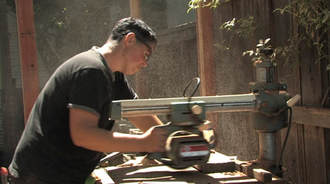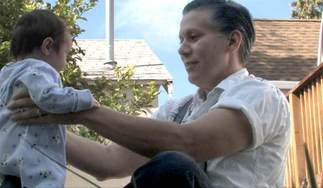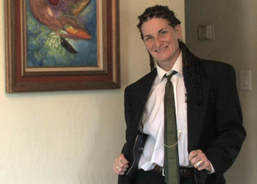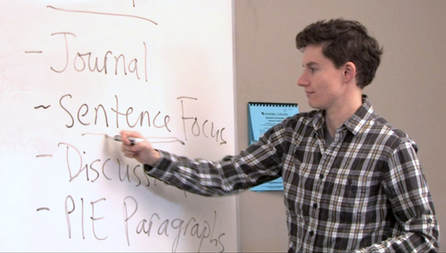
What is this film about?
This film is not about surface issues such as clothing or a butch aesthetic. It is about the dilemma of trying to be true to oneself and the challenge of not fitting in. The women in this film have all had to deal with judgment and rejection because they are obviously gay and unmistakably butch.
While lesbians and gay men are enjoying more acceptance from society in general, this tolerance is often limited to those individuals who seem most like their heterosexual counterparts: masculine men and feminine women. There is much less comfort with and approval of those who do not conform to gender expectations such as effeminate men and butch women. This discomfort exists, surprisingly, sometimes even within queer communities.
The women portrayed in this film thoughtfully examine and challenge society’s assumptions about what it means to be masculine or feminine. They reveal how they have learned to cope and thrive in a world that does not honor them.
This story is universal in that we all struggle with fitting in and belonging. We worry that we are not good enough just as we are. We strive to embrace our true selves. But no matter what messages we receive from the outside world, ultimately we come to realize that the one opinion that matters most, is our own. These women are examples of the challenges and victories that come with leaning to accept ourselves as we are.
Filmmaker's Statement
I felt a need to make this film because as a butch lesbian myself I have experienced so much isolation. I often felt that I was the only one like this. Growing up in a rural area I had no role models. I could not find a future for myself in the women in my life. Not in my family or at school. Not in the adults in my world. And especially not in newspapers or on TV. I was left to figure it all out by myself.
When I moved to the San Francisco Bay Area when I was in my 20s after college I discovered others similar to myself there. I was relieved. But 30 years later I still find that many of the myths and stereotypes about butches like us persist. We are still battling for our right to exist and to be ourselves. Insults, insinuated or shouted, still occur. I continue to find degrading caricatures of people like me. Realistic and positive images of butches are still lacking in the media.
My butch friends had gone through many similar situations but we had rarely shared our stories, often out of shame. As a result we didn’t know how common our experiences were. And we had been under the erroneous impression that we each had to bear these burdens alone. My butch friends inspired me to do something for us and to acknowledge and appreciate our own lives.
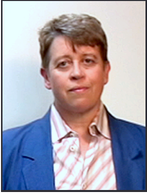
So with the help of my friends, we made this film to validate other butches, most whom we would never meet, and to let them know that we know what it is like. They aren’t the only ones. We have been there too and they are fine just the way they are. We don’t want other butches, especially younger ones, to feel like they have to go through it all alone too.
With this film I feel we are like the citizens of Dr. Seuss’s Whoville who shout all together
“We are here! We are here! We are here!” so we can be heard and claim our space.
With this film I feel we are like the citizens of Dr. Seuss’s Whoville who shout all together
“We are here! We are here! We are here!” so we can be heard and claim our space.
